Health Care > QUESTIONS & ANSWERS > ATI PHARMACOLOGY PROCTORED-STUDY GUIDE FOR NURSES (All)
ATI PHARMACOLOGY PROCTORED-STUDY GUIDE FOR NURSES
Document Content and Description Below
ATI PHARMACOLOGY PROCTORED-STUDY GUIDE FOR NURSES CH 11 Pharm for Nurses Book 1.Following a surgical procedure, the client states that he does not want to take narcotic analgesics for pain because h... e is afraid he will become addicted to the drug. What is the best response by the nurse to the client’s concerns? a.1. Dependence on narcotics is common among postoperative clients but can be managed successfully. b.2. Addiction to prescription drugs is rare when used as prescribed and according to medical protocol such as for pain control. c.3. Female patients are more likely to become addicted. d.4. Addiction is rare if the patient has a high pain threshold. Rationale: Prescription drugs rarely cause addiction when used according to accepted medical protocols. Options 1, 3, and 4 are incorrect. Postoperative clients or females are not more likely to become addicted than other clients. A client’s pain threshold does not determine the potential for addiction. The risk of addiction for prescription medications is primarily a function of the dose and the length of therapy.. 2.The client states that she has been increasing the amount and frequency of the antianxiety drug she is using because “it just isn’t working like it did before.” What effect does this indicate? a.1. Immunity b.2. Resistance c.3. Tolerance d.4. Addiction Rationale: Tolerance is a biologic condition that occurs when the body adapts to a substance after repeated administration. Over time, higher doses of the drug are required to produce the same initial effect. Options 1, 2, and 4 are incorrect. Immunity is related to the response of the body’s immune system and not to drug response. Resistance is a concept most often applied to antibiotic drugs, and the term addiction is used to describe an overwhelming compulsion that drives someone to take drugs repetitively, despite serious health and social consequences. 3.A 17-year-old confides to the nurse that he smokes marijuana but that “it isn’t as bad as tobacco cigarettes; it’s not addicting like nicotine!” Which statement would be an appropriate response by the nurse? a.1. While marijuana may not be addicting in the same way that nicotine is, it damages lung tissue and may cause breathing problems and cancer. b.2. Marijuana is not approved for any use except under highly regulated conditions. c.3. Marijuana is four times as addicting as nicotine. d. 4. The effects of marijuana are much more prolonged than nicotine because it stays in the body longer. Rationale: Marijuana does not appear to cause physical dependence or tolerance but because it is inhaled deeper and held in the lungs for a longer length of time, it may damage lung tissue and promote cancer. Options 2, 3, and 4 are incorrect. Marijuana is a controlled substance; however, because this teen is using the drug, stating this fact may have little influence on his use. Marijuana has not been shown to be more addicting than nicotine. And while metabolites of marijuana remain in the body for prolonged periods, the effects may not remain. This statement may be considered a desirable reason to continue using the drug. 4.The client with a history of alcohol abuse is admitted to the hospital. The nursing care plan includes assessment for symptoms of alcohol withdrawal. What symptoms will the nurse observe for? (Select all that apply.) a.1. Confusion b.2. Violent yawning c.3. Tremors d.4. Constricted pupils e.Hallucinations Rationale: Clients who are experiencing alcohol withdrawal typically experience tremors, fatigue, anxiety, abdominal cramping, hallucinations, confusion, seizures, and delirium. Options 2 and 4 are incorrect. Violent yawning is a symptom of heroin withdrawal and constricted pupils is a sign of opioid toxicity 5.The client states that she is going to quit smoking “cold turkey.” The nurse teaches the client to expect which of the following symptoms during withdrawal from nicotine? (Select all that apply.) a.1. Headaches and insomnia b. 2. Increased appetite c.3. Tremors d.4. Insomnia e.5. Increased heart rate and blood pressure Rationale: Symptoms of nicotine withdrawal include irritability, anxiety, restlessness, headaches, increased appetite, insomnia, inability to concentrate, and a decrease in heart rate and blood pressure. Options 3 and 5 are incorrect. Nicotine withdrawal is not known to cause tremors or an increase in heart rate or blood pressure. If these occur, the nurse should evaluate for another possible causative factor. 6.What is the difference between physical and psychological dependence? a.1. Physical dependence is the adaptation of the body to a substance over time such that when the substance is withdrawn, withdrawal symptoms will result. Psychological dependence is the overwhelming desire to continue using a substance after it is stopped or withdrawn but without physical withdrawal symptoms occurring. b.2. Physical and psychological dependence are terms that are used interchangeably. In both cases, physical withdrawal symptoms will result if the substance is withdrawn from use. c.3. They occur together: psychological dependence is the first type of dependence to occur with a substance, followed by physical dependence. d.4. Psychological dependence develops when the brain adapts over time to the use of the substance. Physical dependence is the active seeking of a substance associated with a desire to continue using the substance. Rationale: Physical dependence and psychological dependence may occur together and result in drug-seeking behavior. But physical dependence occurs as the body adapts to the substance such that withdrawal symptoms will occur if the substance is stopped. Physical withdrawal symptoms do not occur with psychological dependence although an intense craving for the substance may be felt. Options 2, 3, and 4 are incorrect. Physical and psychological dependence are not interchangeable terms and one does not always lead to the other. Psychological dependence is a term associated with the desire to continue using the drug, not the term physical dependence. [Show More]
Last updated: 1 year ago
Preview 1 out of 34 pages
Instant download
 (1).png)
Instant download
Reviews( 0 )
Document information
Connected school, study & course
About the document
Uploaded On
Mar 10, 2022
Number of pages
34
Written in
Additional information
This document has been written for:
Uploaded
Mar 10, 2022
Downloads
0
Views
43

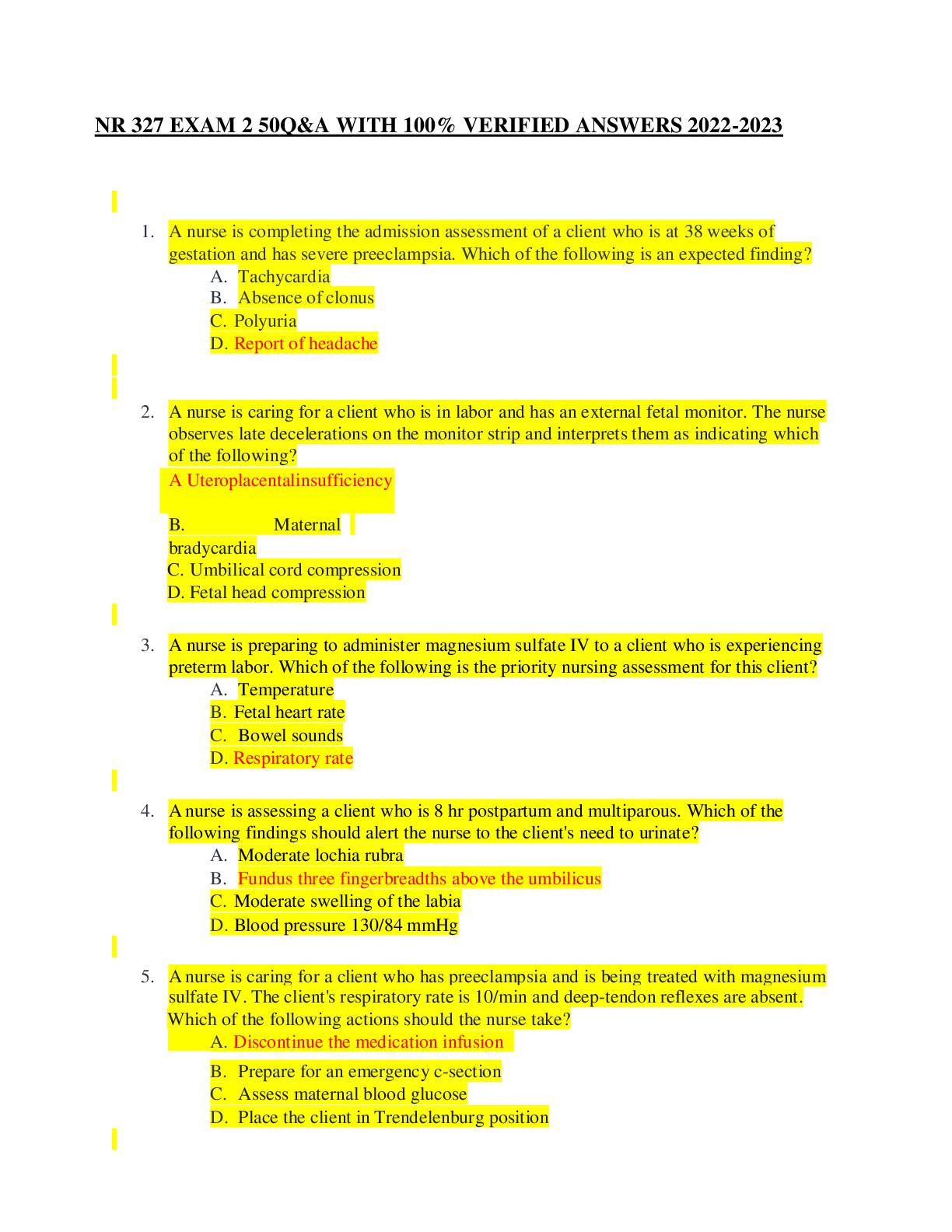
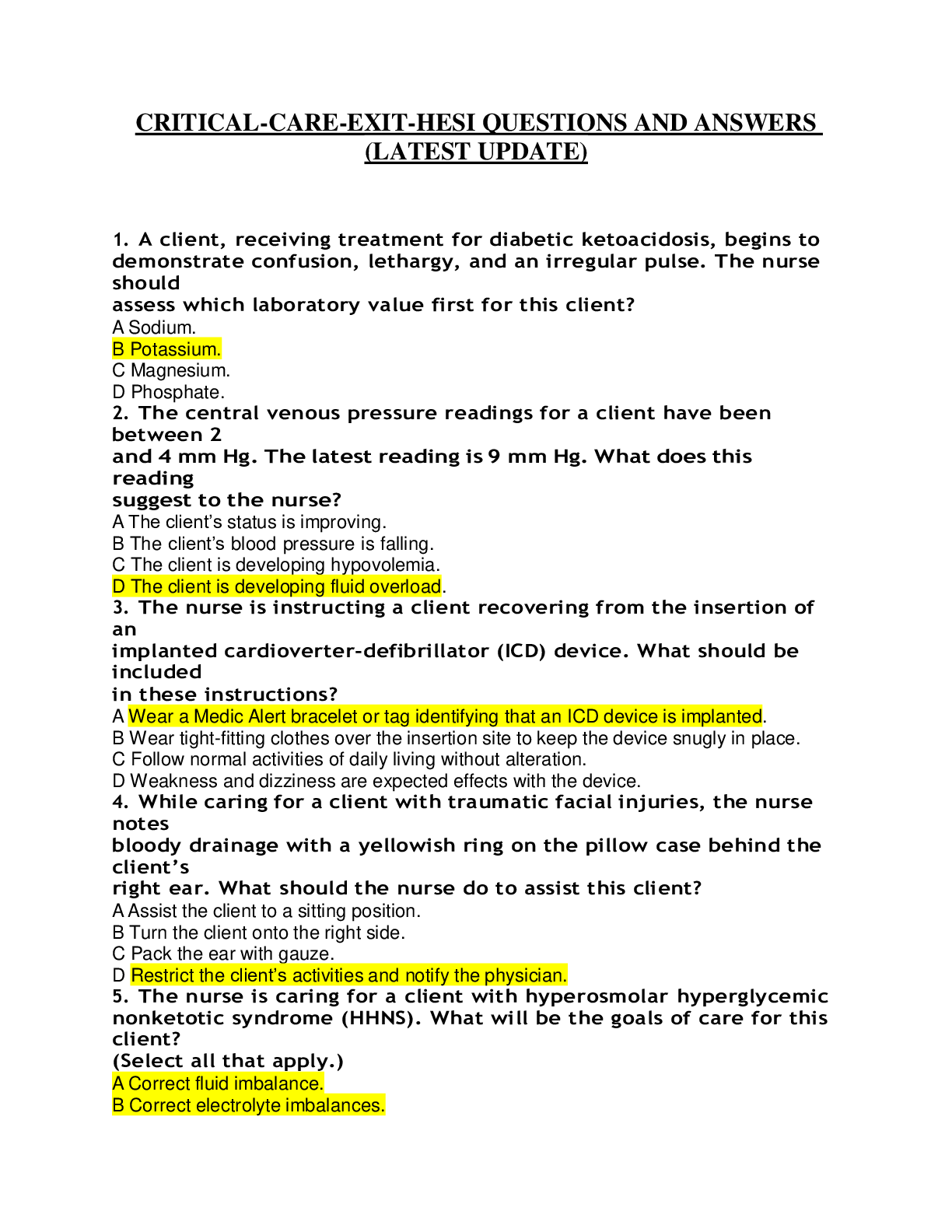
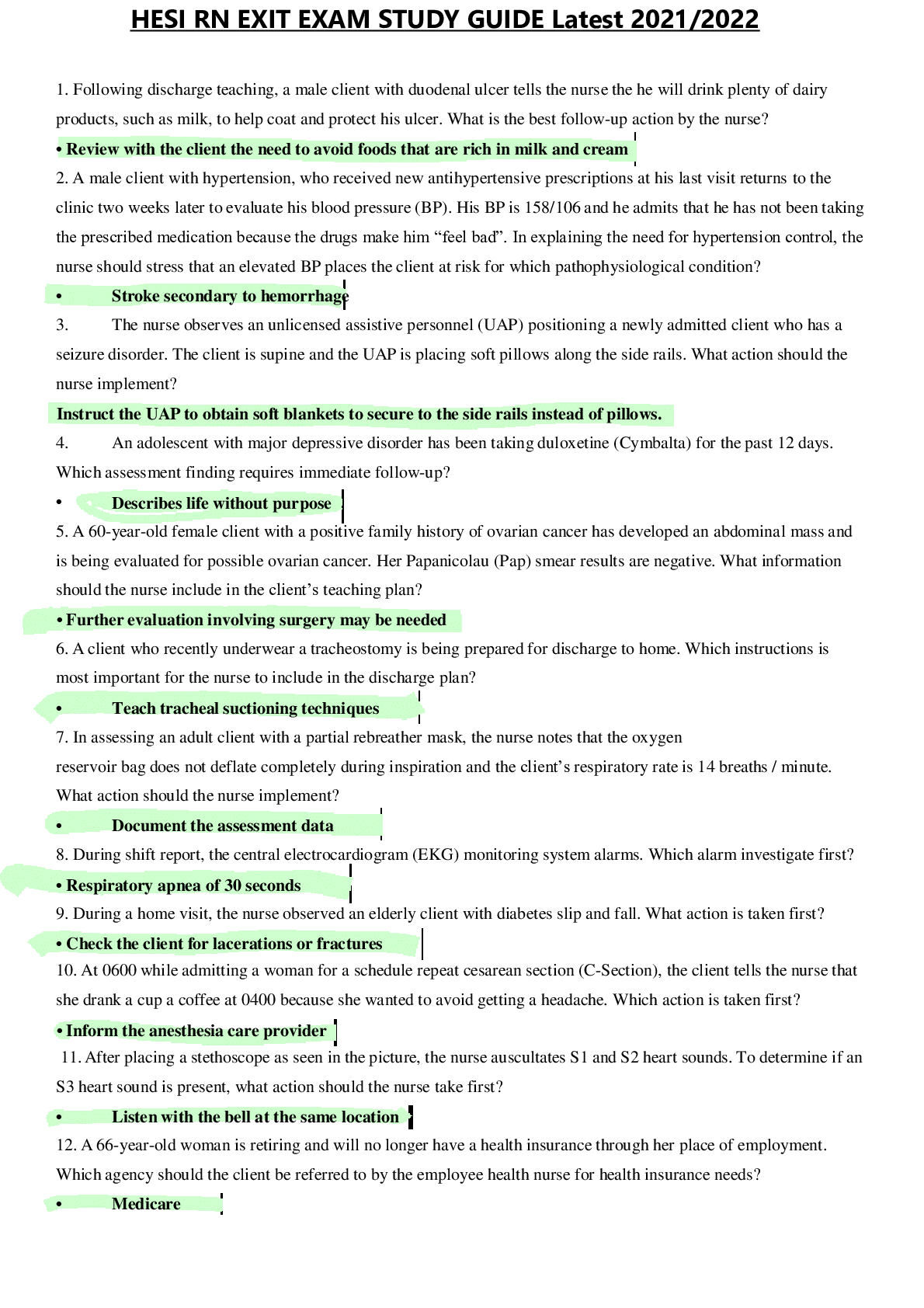
.png)
.png)
.png)
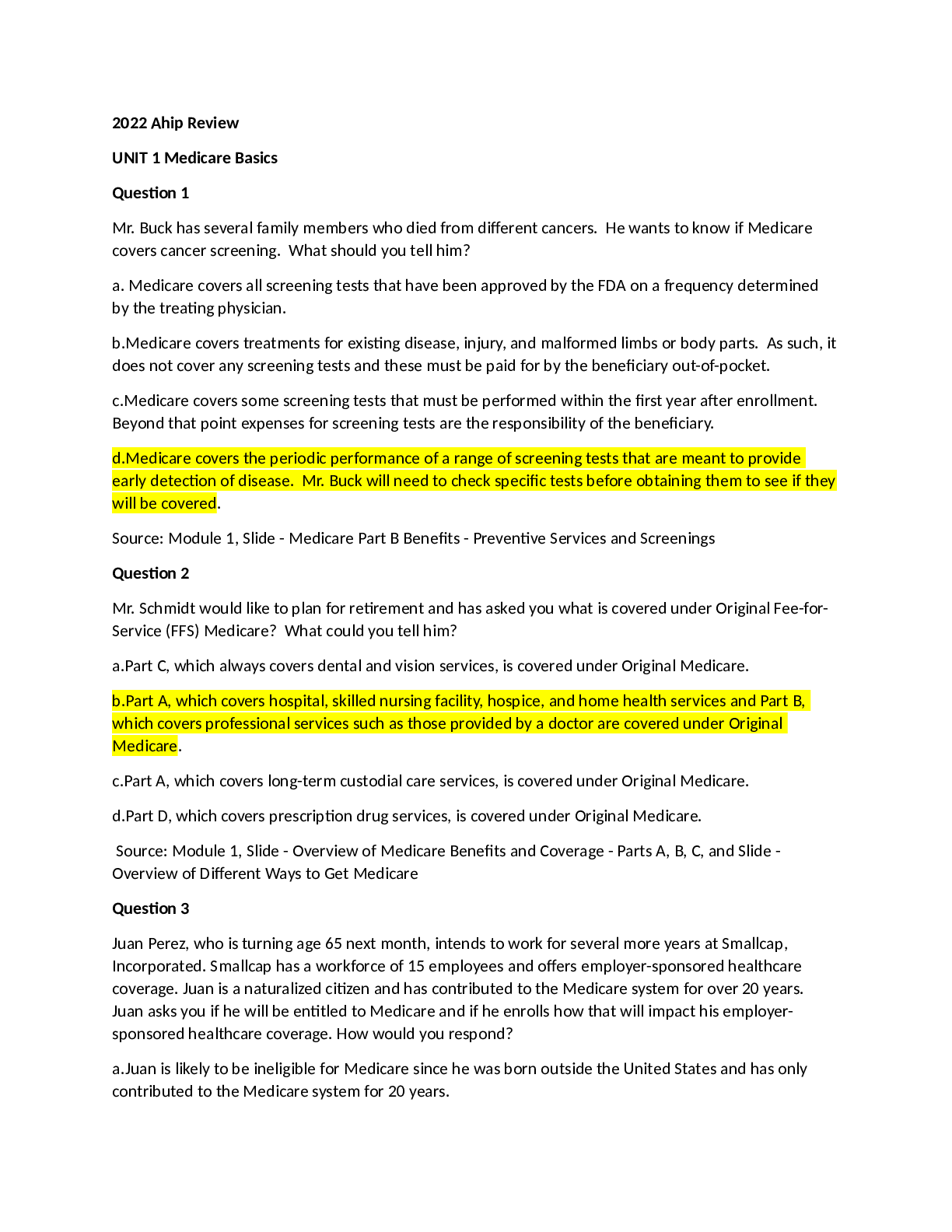

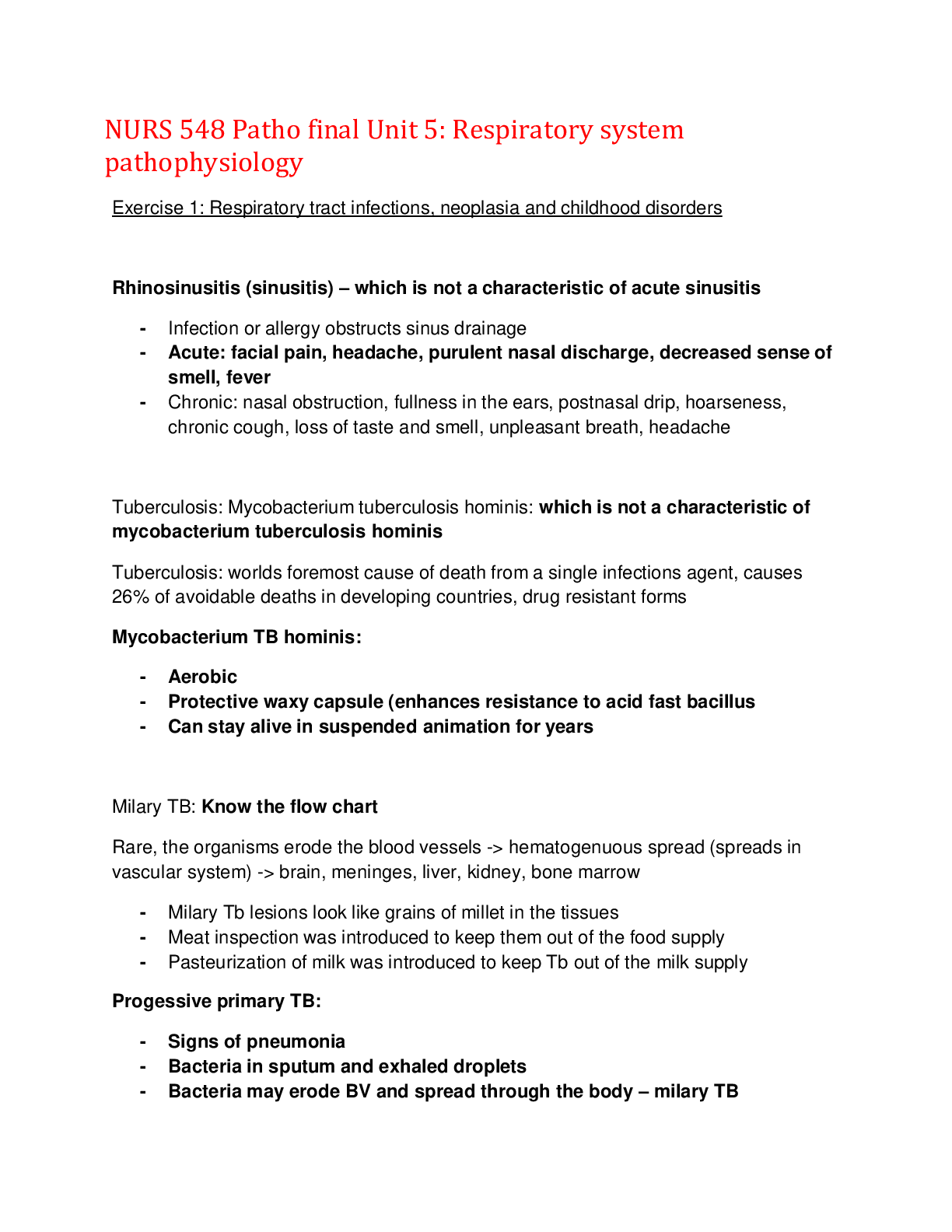
.png)
.png)
.png)
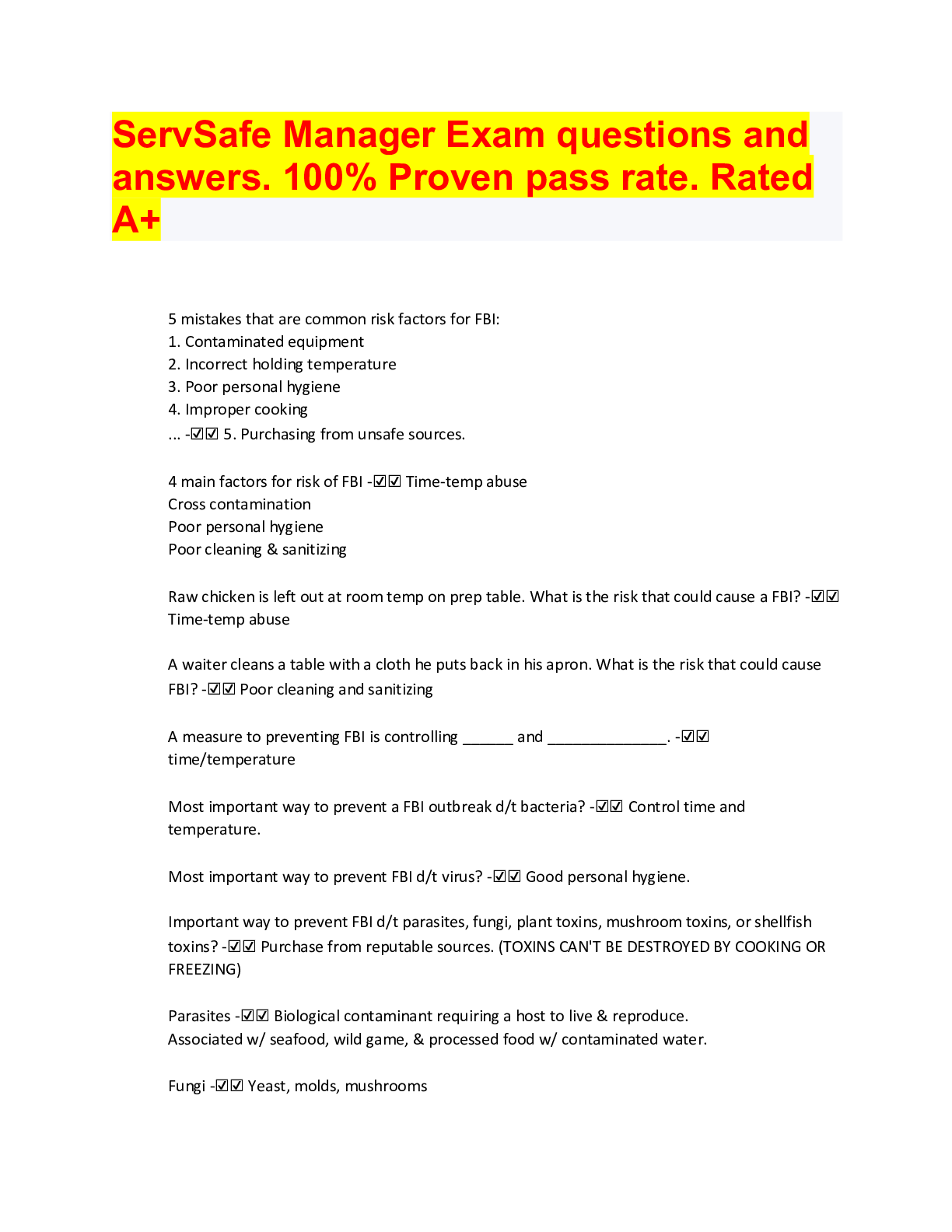
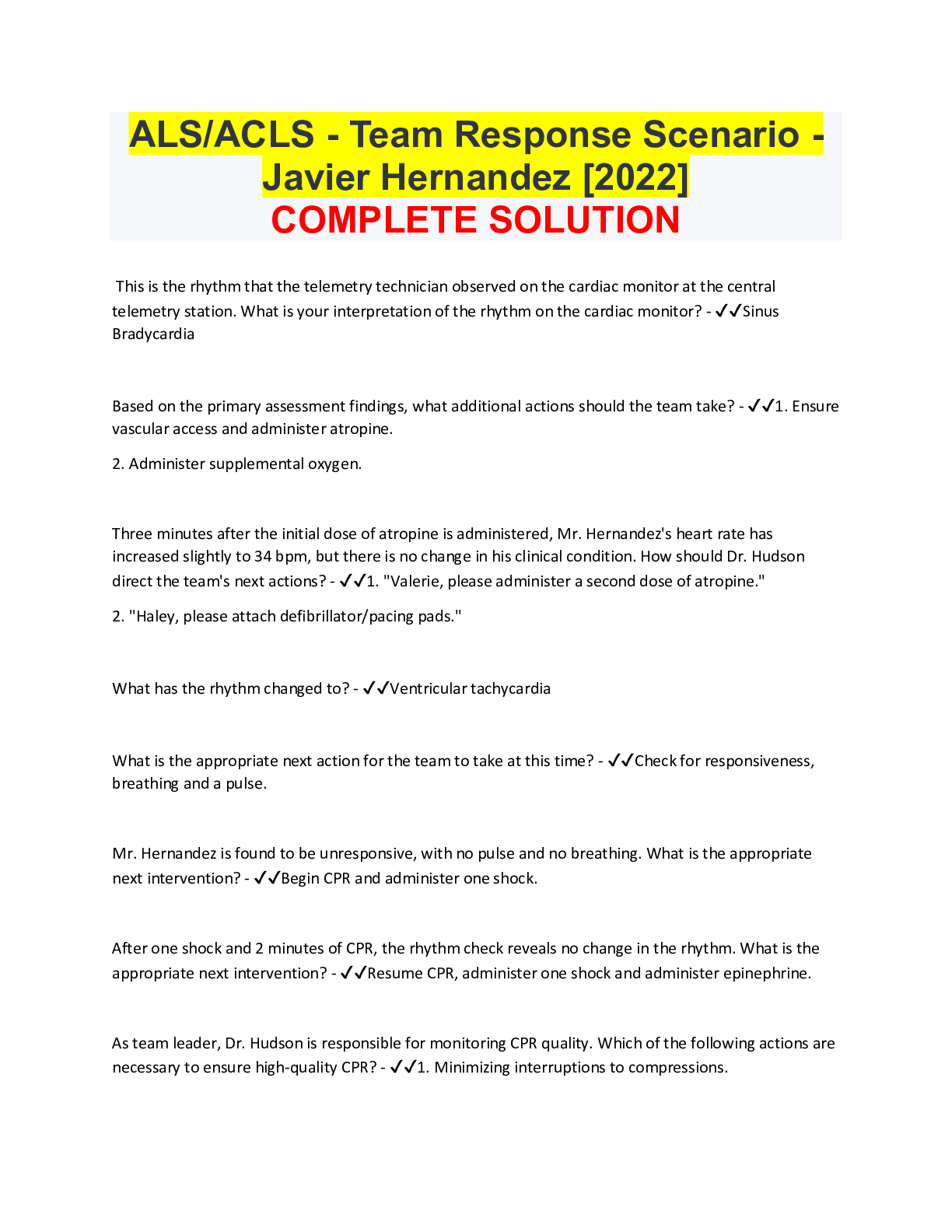
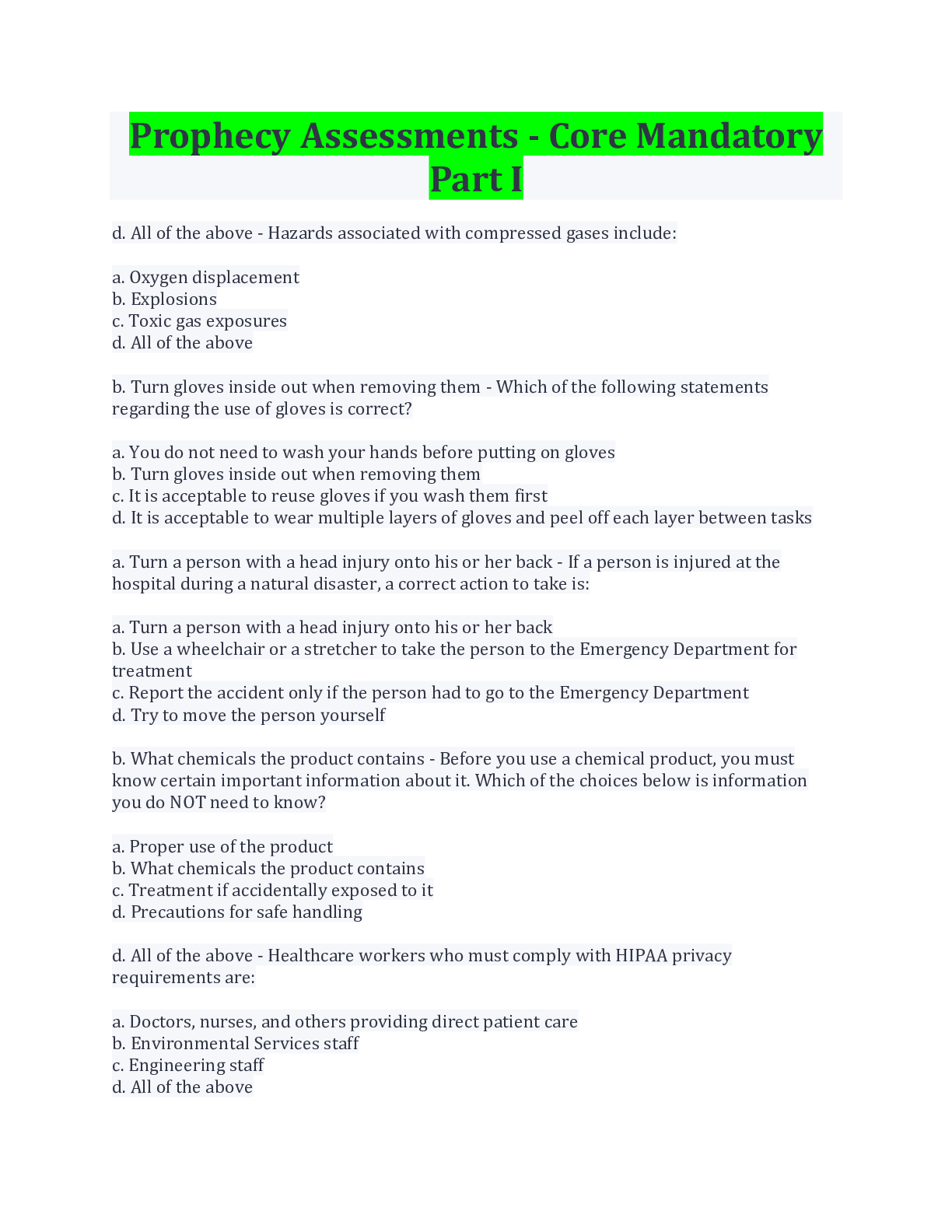
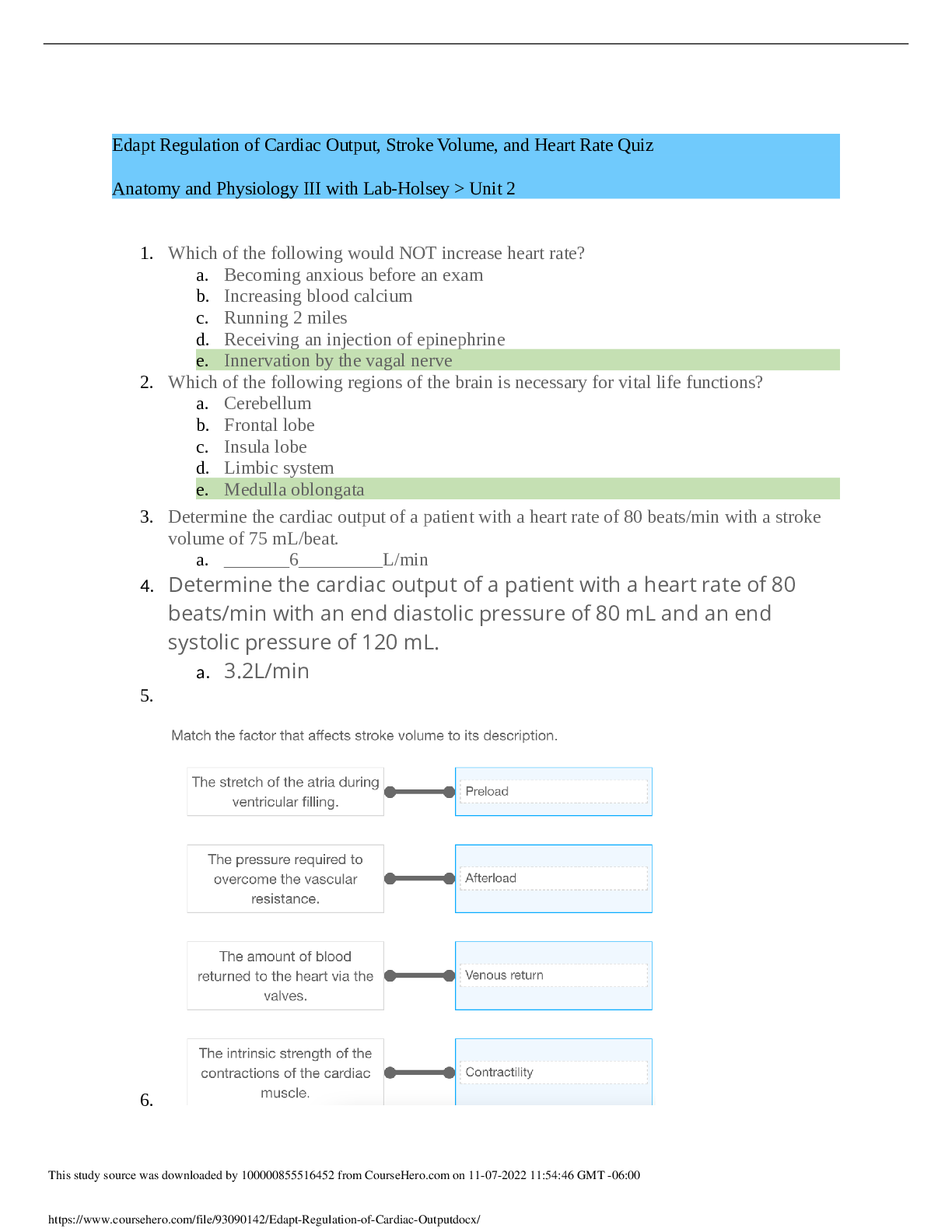
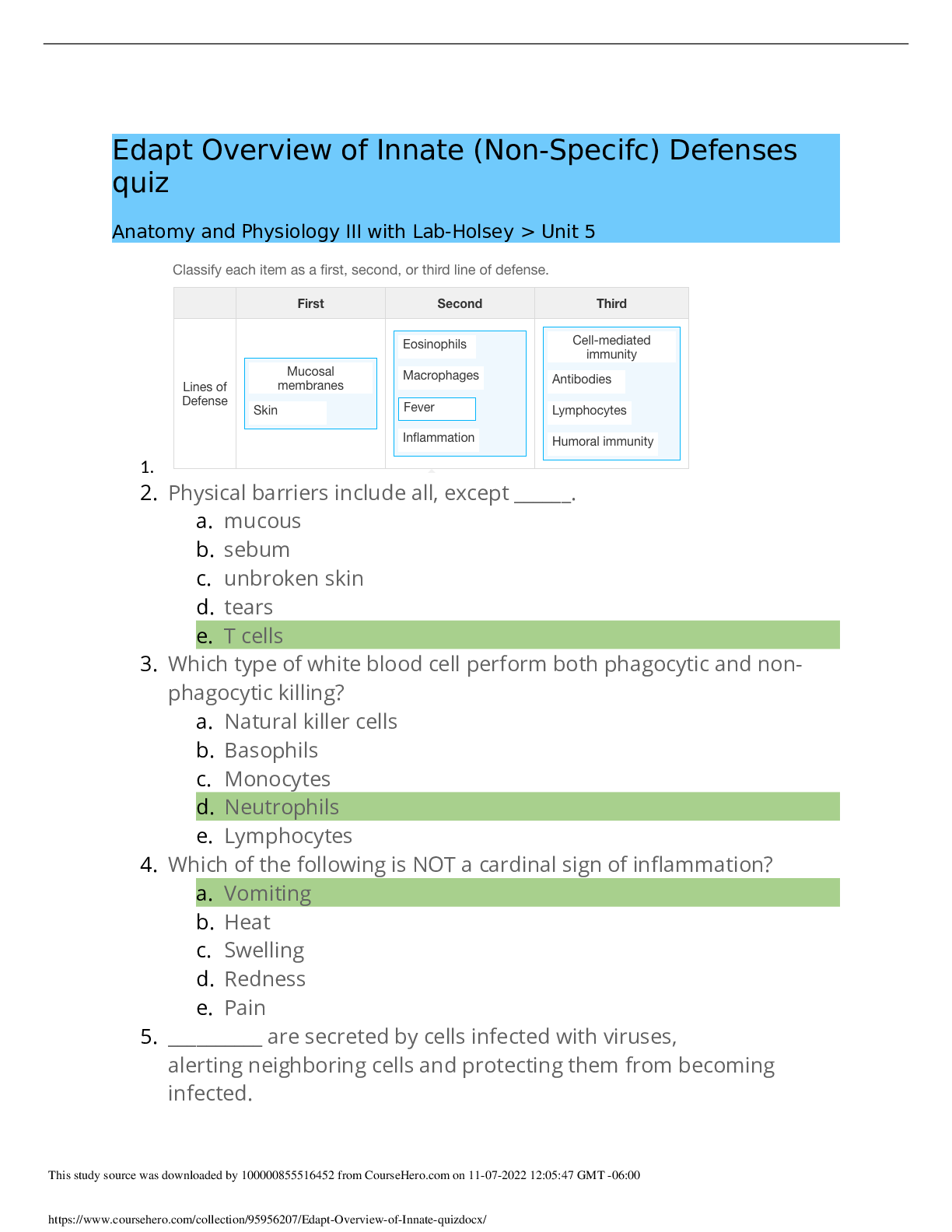
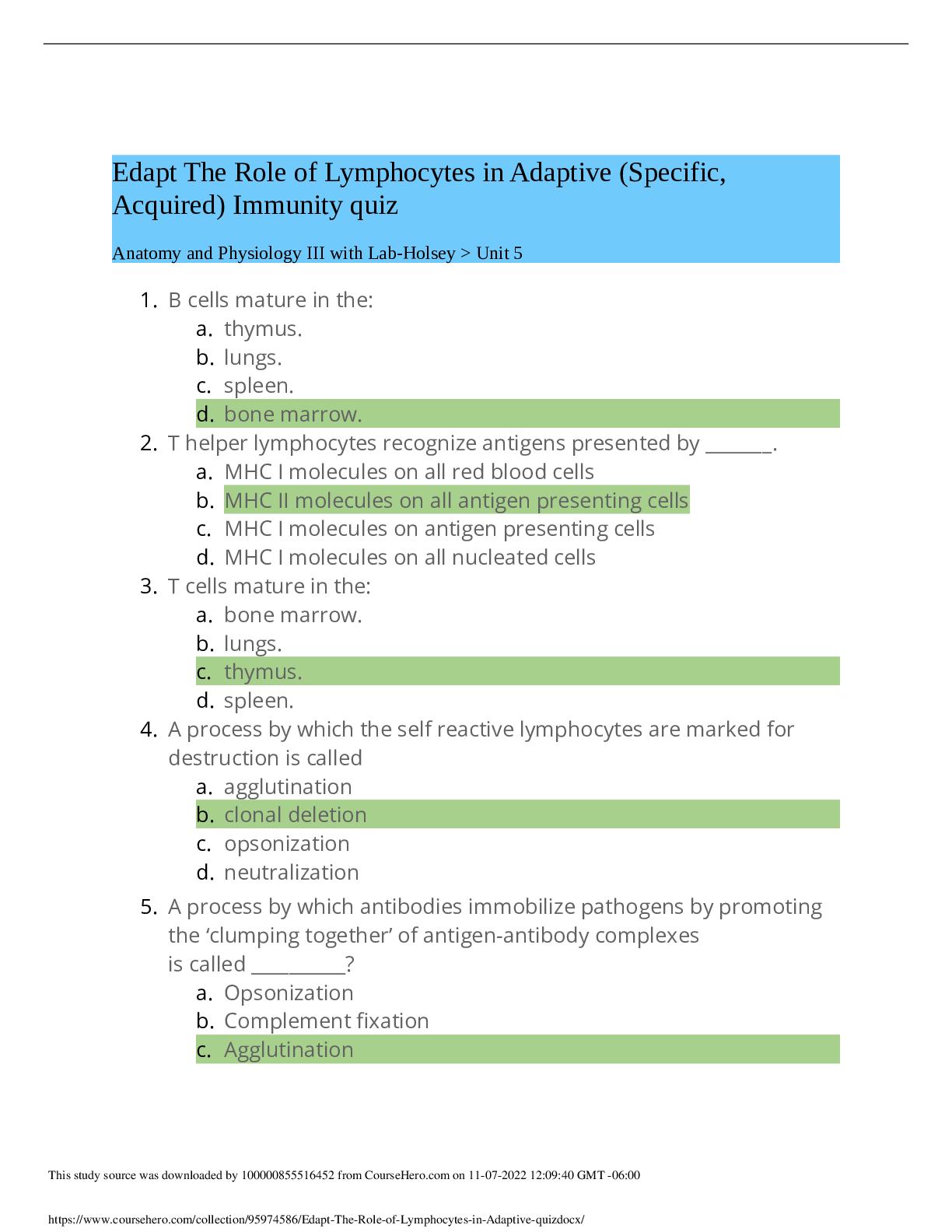

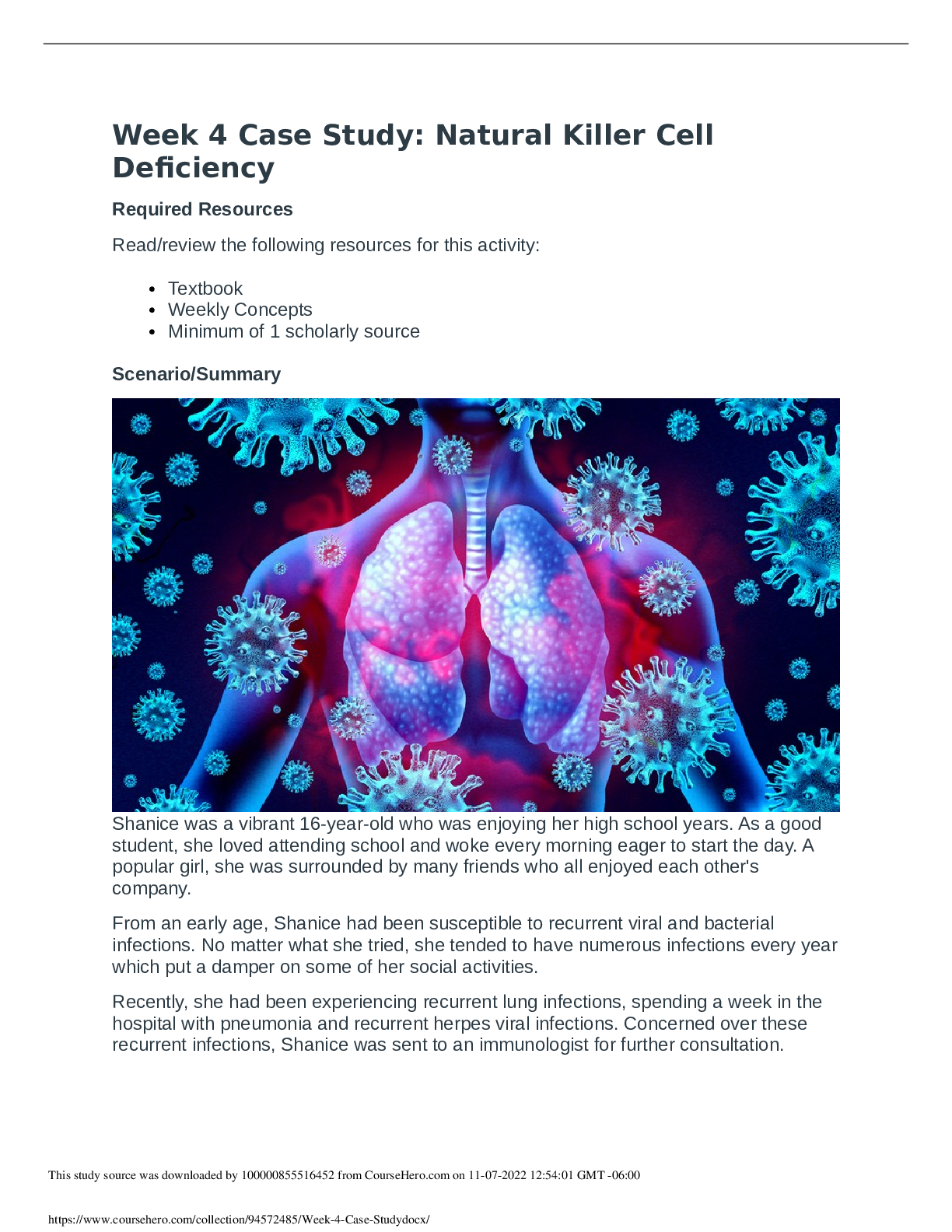
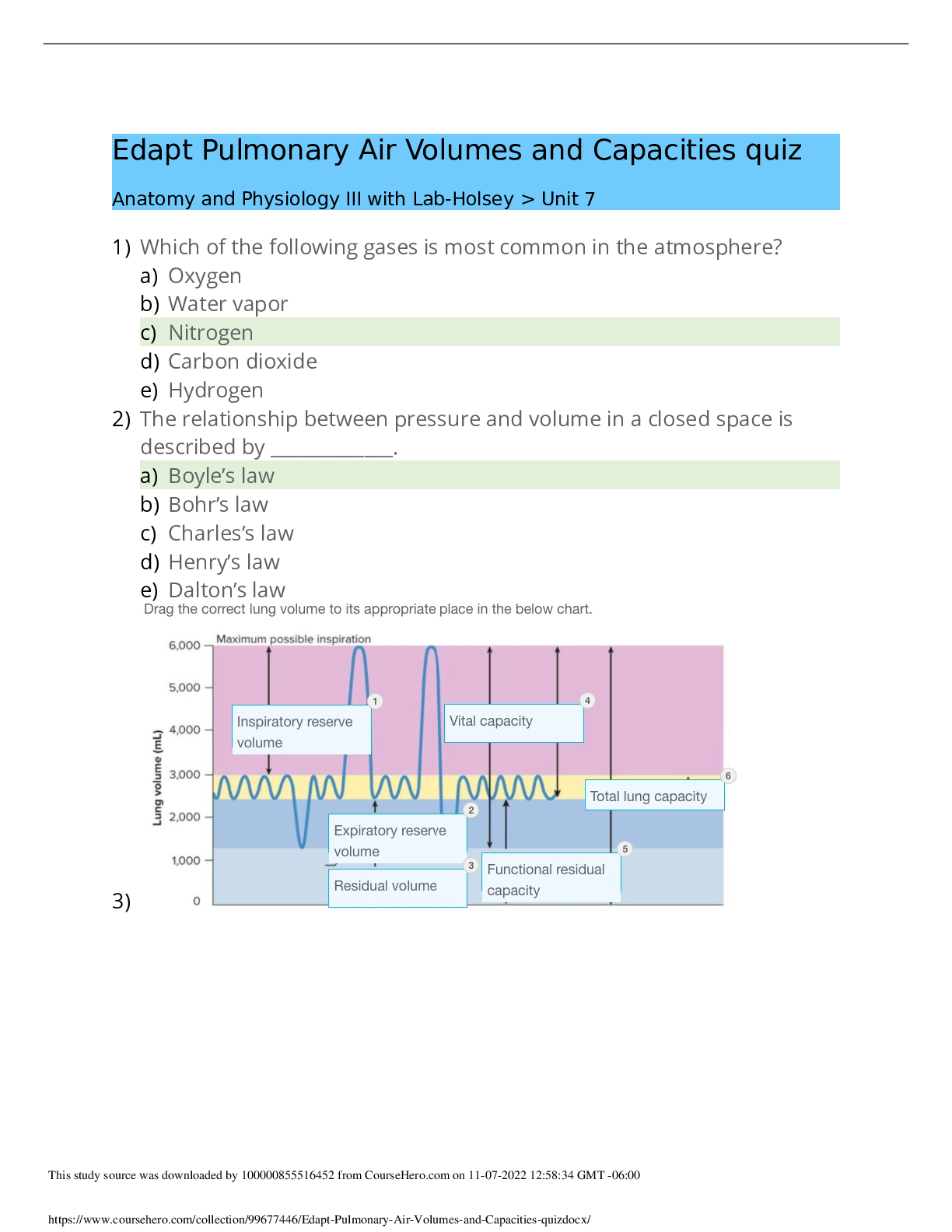
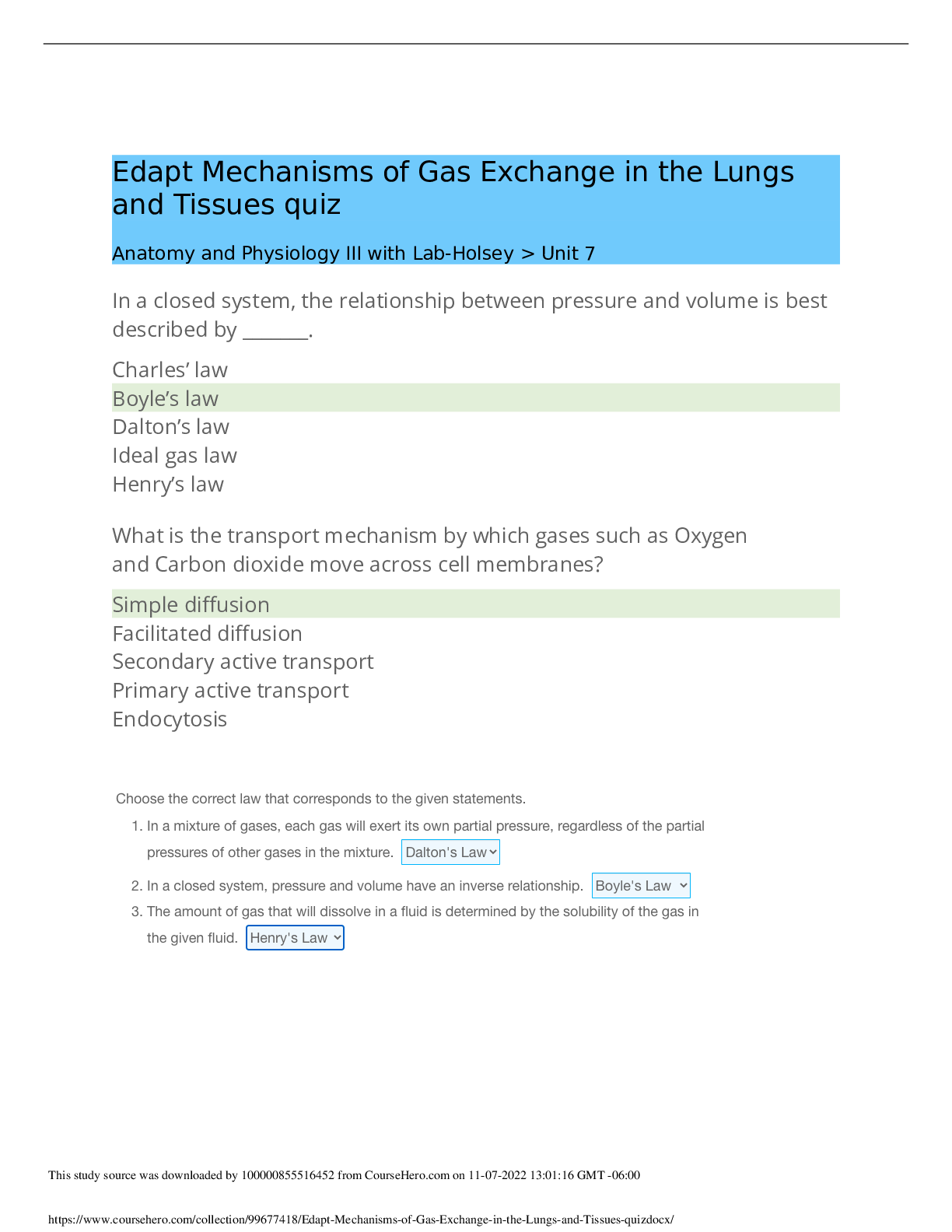
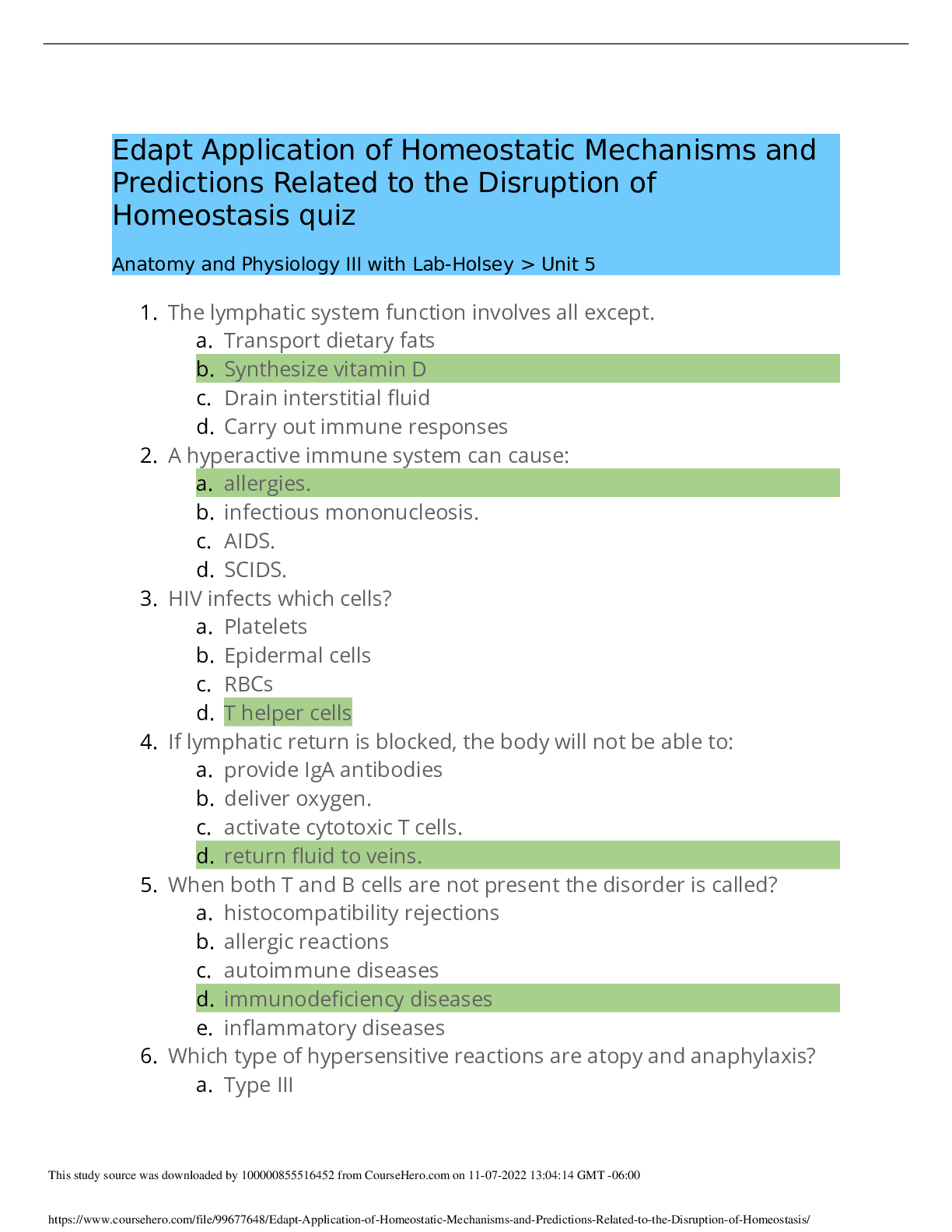
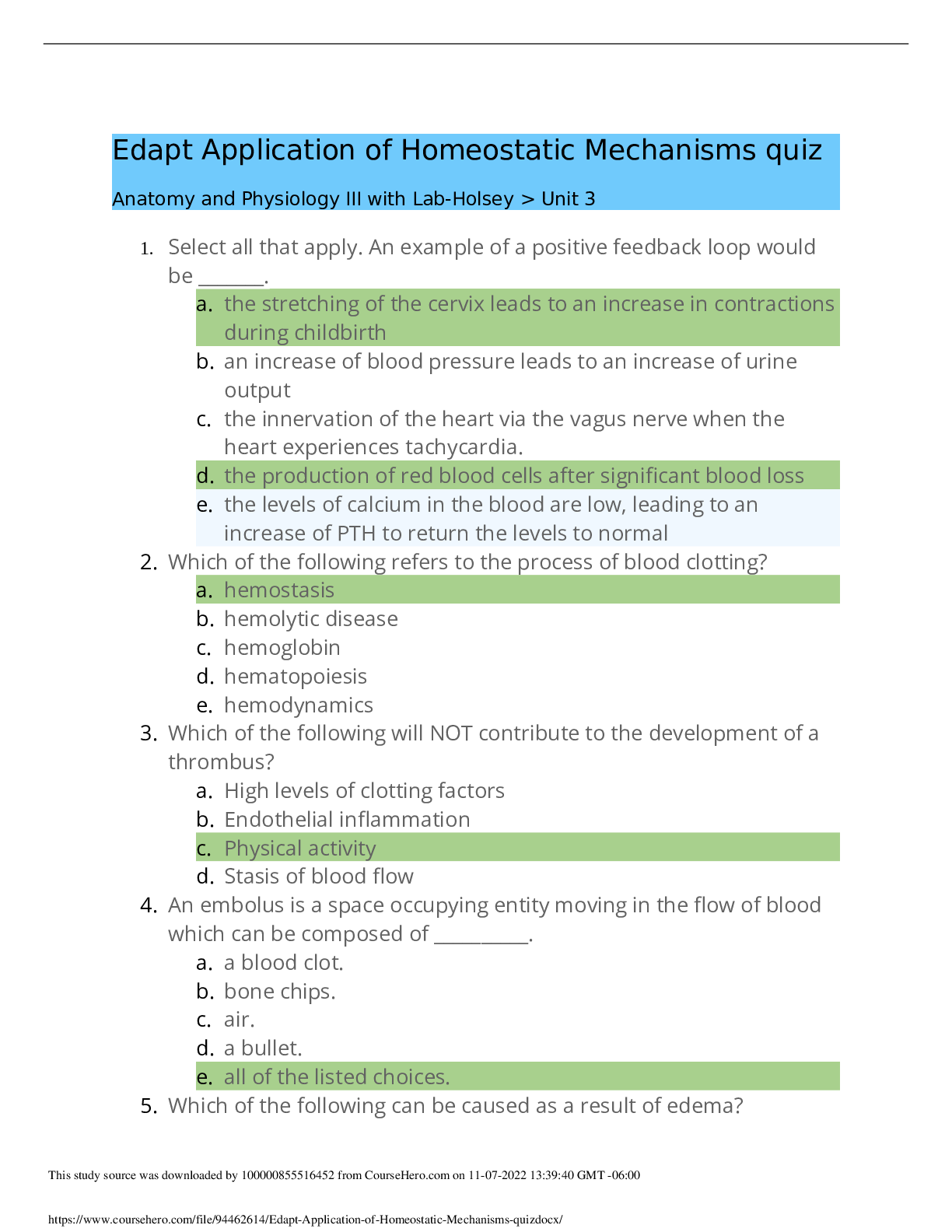
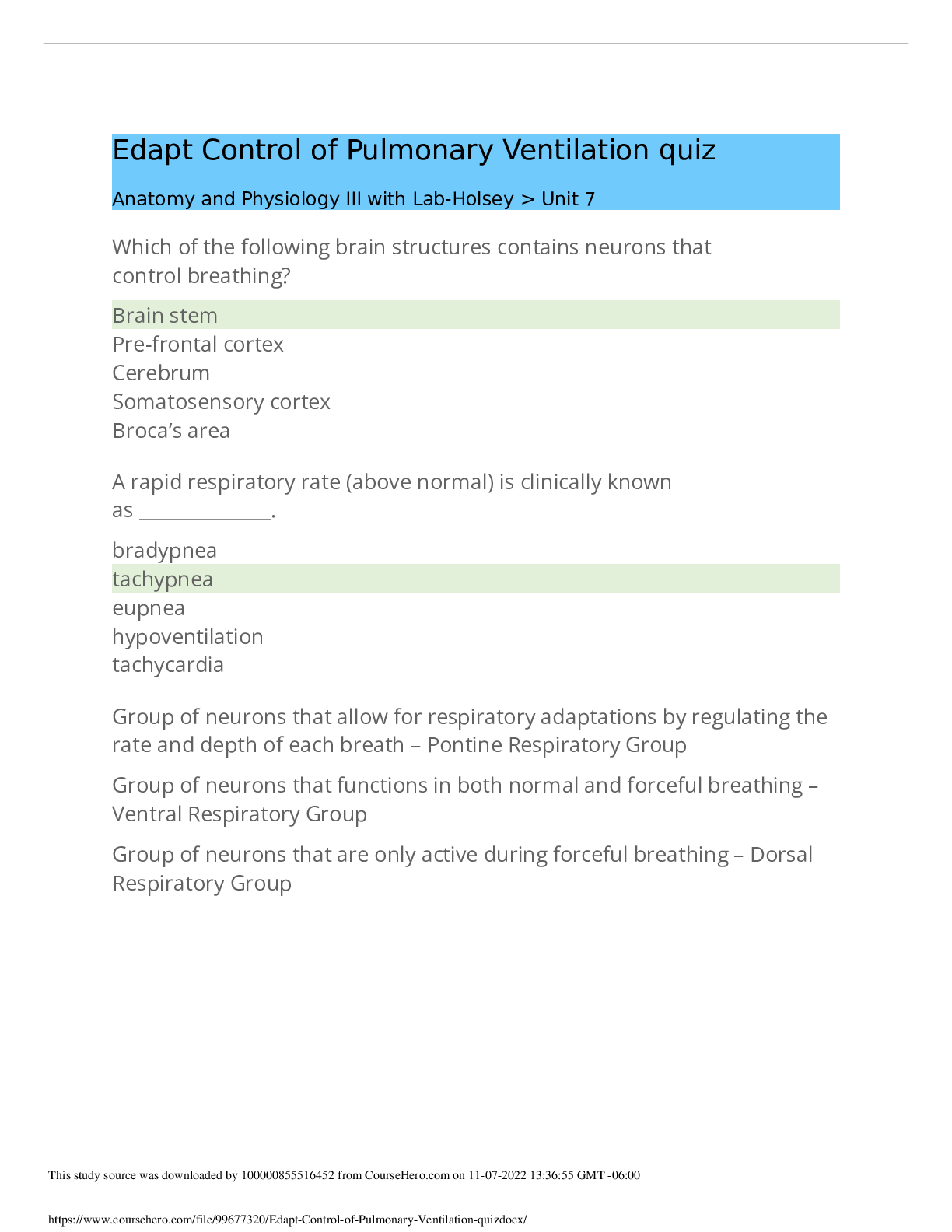
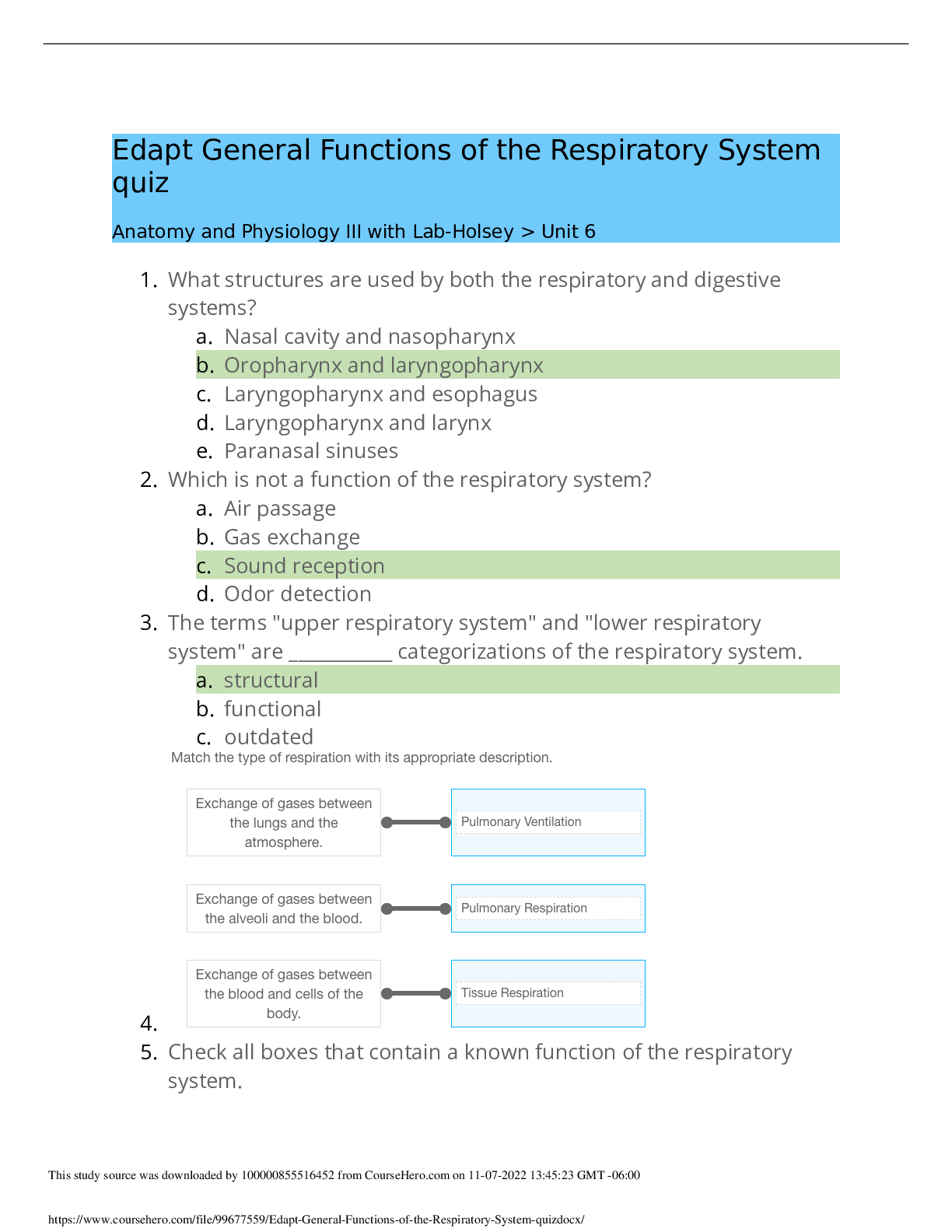
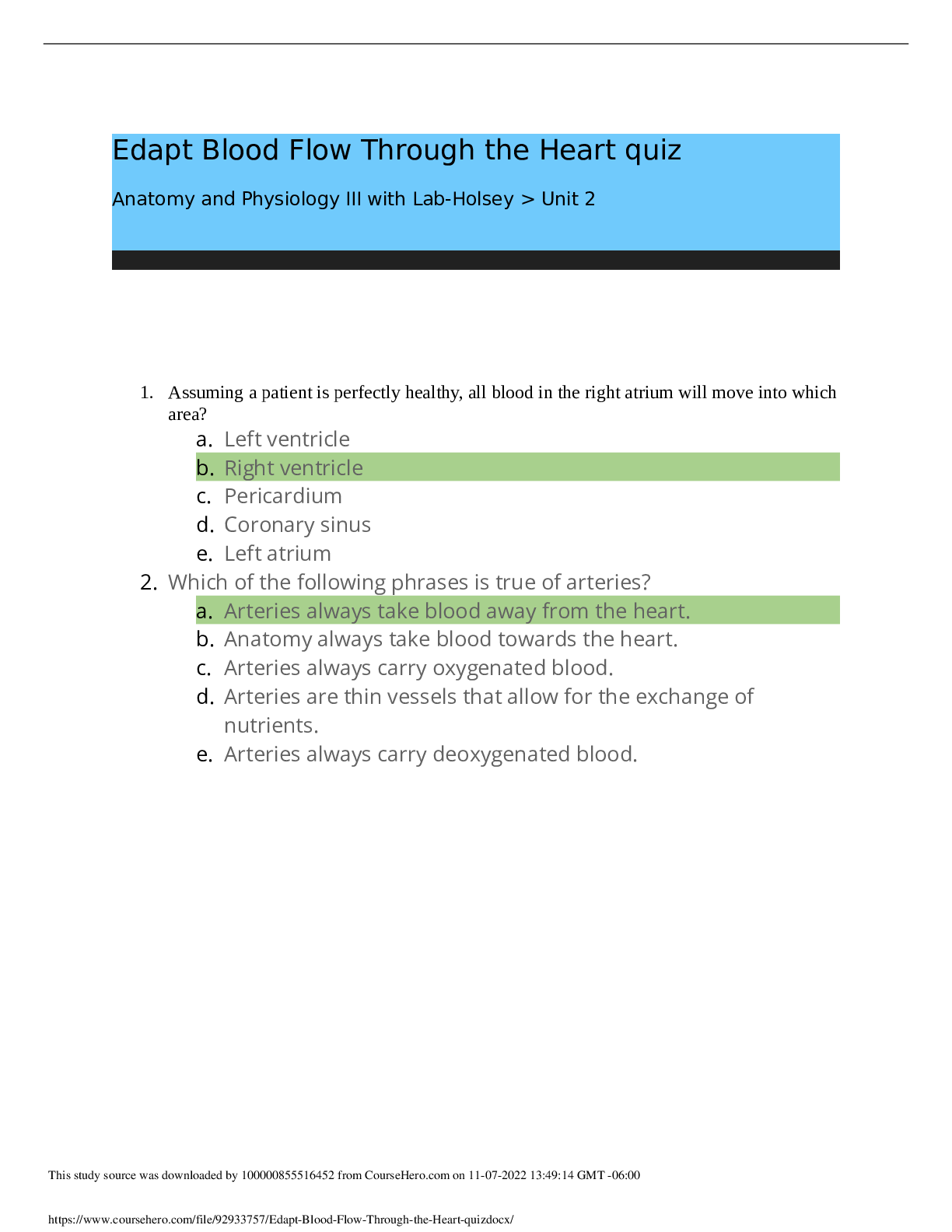
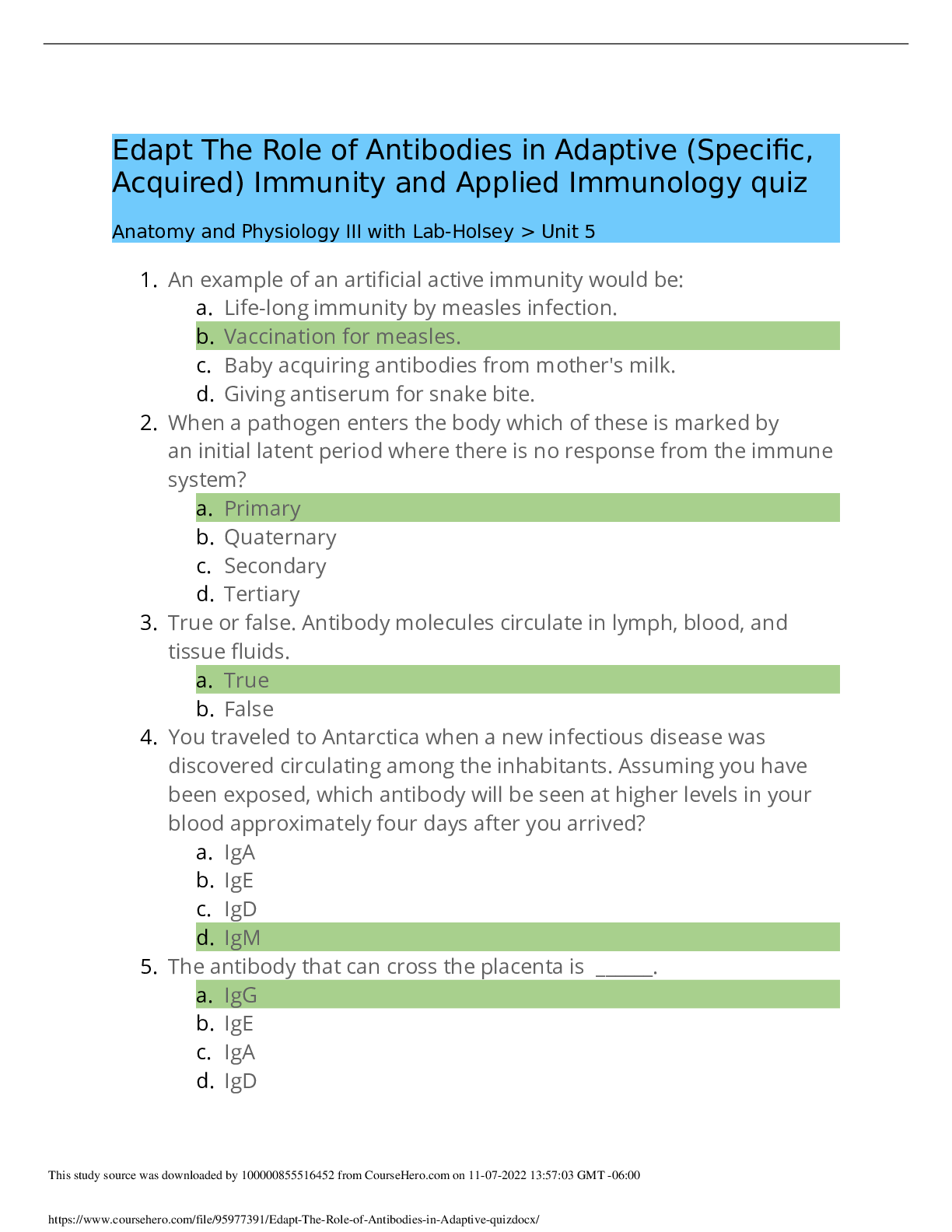
.png)
.png)

